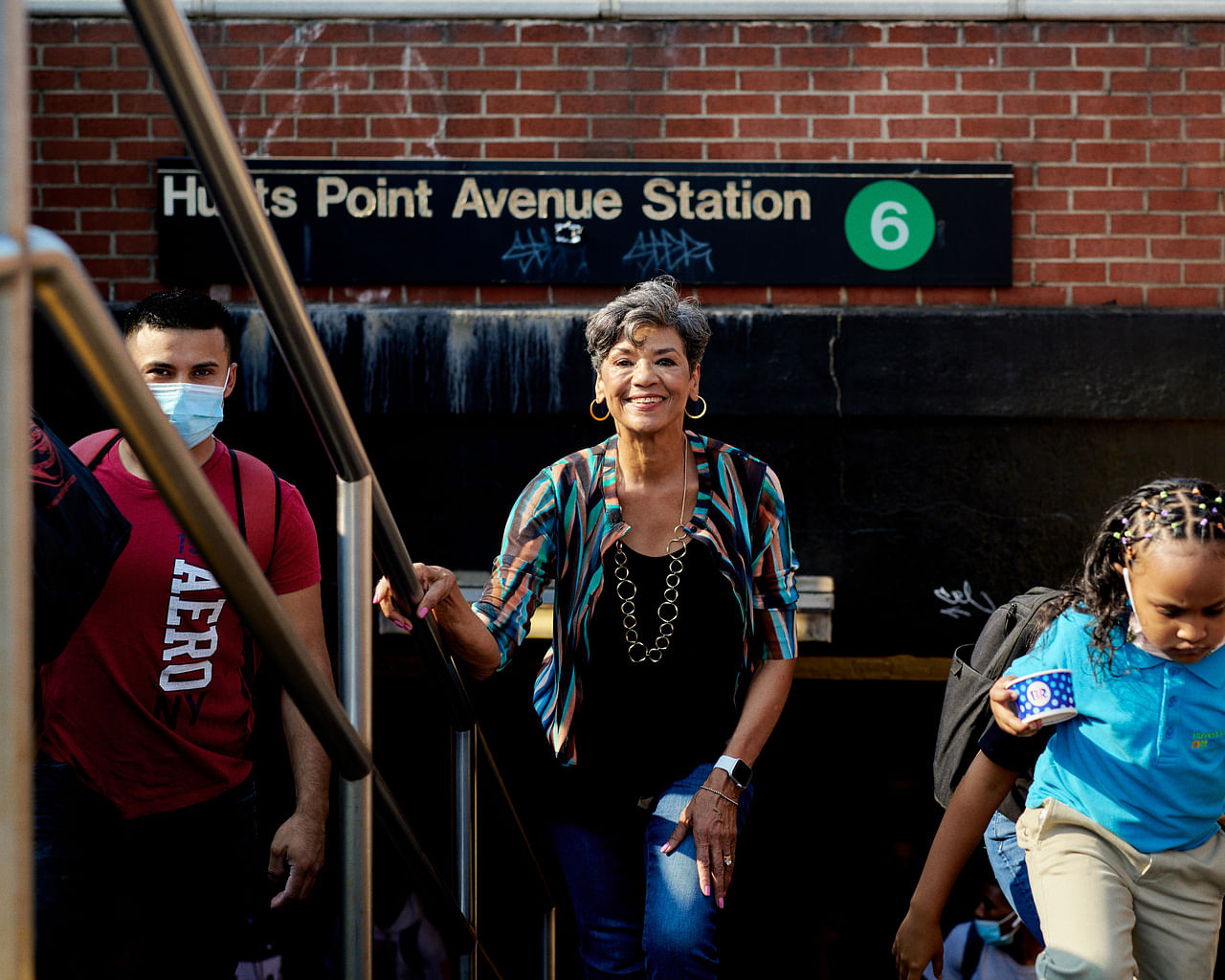NEW YORK (NYTIMES) - Although Sonia Manzano has won 15 Emmys for television writing and numerous accolades for her decades playing Maria on Sesame Street, she could not have been more emphatic when asked if she had ever wanted to develop her own pre-school show during all those years.
"I'd rather stick a pin in my eye than try to create a series after Sesame Street," she said, describing her prevailing attitude while working on that show. "I mean, how do you top that act? Sesame Street did everything."
Well, maybe not everything. In a recent video interview, Manzano, 71, described how PBS Kids persuaded her to become not only the creator of a pre-school show, but also one of its executive producers, writers and voice actors.
Her animated series, Alma's Way, whose title character is a six-year-old New Yorker of Puerto Rican heritage, does not try to outdo Sesame Street so much as complement it.
It amplifies that earlier show's attention to diversity and gives children ages four to six an unexpected guide to critical thinking. If the theme of Alma's Way could be summed up in three words, they would be - use your head.
"We didn't have a show about thinking," said Ms Linda Simensky, head of content for PBS Kids, who, in 2013, urged Manzano to develop a series about a Latino family after discovering the many children's books she had written. Ms Simensky left the theme up to Manzano, who thought back to her own childhood resourcefulness and to a resonant remark from Lin-Manuel Miranda's Broadway show Hamilton: "I'm not stupid."
"That line, and it's such a simple line, was so fraught with meaning," Manzano recalled. She added that it reminded her of "kids who think that they are stupid because they don't have the answers. And somehow, I felt that that was part of what Alma's Way was about".
Young Alma Rivera finds her own answers, using what Ms Ellen Doherty, chief creative officer of Fred Rogers Productions, which produces the series, called the small heroine's "think-through moments".
Confronting a problem in each 11-minute story - there are two in every half-hour episode - Alma steps back and considers the alternatives, the perspectives of those involved and what she can do.
Sometimes, the situations are funny, as in the premiere, when she tries, by herself, to improve her distracted mother's mofongo (a Puerto Rican dish containing fried plantains).
At other times, the premise is more complicated, as when Alma must figure out a solution, step by step, when all her friends want to play in one cardboard refrigerator box.
"I remember thinking how great it would be to do a show where we took problem-solving strategies and applied them to things other than maths," said Ms Doherty, a veteran of Cyberchase, a mathematics-filled series on PBS Kids. "That is part of what clicked for me with the show."
Alma receives additional guidance from the supportive Rivera family, which includes her papi, a veterinarian; her mami, a music teacher; and her little brother, Junior.
Alma - the name means "soul" in Spanish - is closely modelled on Manzano, as was the unflappable Maria, whom she played on Sesame Street for 44 years, beginning in 1971. Like them, Manzano has Puerto Rican roots, but she grew up in a far less cheerful home than Alma's. In her 2015 memoir, Becoming Maria: Love And Chaos In The South Bronx, she writes of living in poverty with an abusive, alcoholic father who frequently beat her mother.
"Because I had this tumultuous childhood, I found refuge in my brain," Manzano said. And, just "as Maria was Sonia, on purpose, so is Alma a little Sonia, on purpose".
That little Sonia is voiced by another Bronx Latina - Summer Rose Castillo, a nine-year-old from Throgs Neck who said she identified with Alma. Castillo added, though, that the series is "not just about Puerto Ricans, it's not just about Latinas, it's about so many different types of families".
For Manzano, that meant not only giving Alma playmates who are African-American, South Asian and white, but also creating friends and family members who are Hispanic in different ways. Alma's papi, for instance, is Afro-Caribbean, while her Uncle Nestor is Cuban, and a neighbour, Beto, is Mexican-American.
"Latinos aren't a monolith," said Jorge Aguirre, the series' head writer. "That's one of the things we get to explore, down to the language, food and music. It's a great sandbox to be playing in."

Manzano also invented a character with a disability - Alma's musically gifted cousin, Eddie Mambo, who has cerebral palsy. She based him on both her real cousin Eddie, a musician without disabilities, and a boy she knew in her youth who had lost the full use of his legs to polio.
His "boldness in asking girls to dance when his legs were in braces always stayed with me", she said, emphasising that the series was as specific in character traits as in visual details.
All this realism serves to help diverse young viewers see themselves, an experience Manzano remembered never having as a small child.
While Hispanic characters do exist in animated pre-school shows - Nickelodeon's Dora The Explorer and Santiago Of The Seas come to mind - those series involve fantastical adventures, not dynamics on a Bronx playground.

